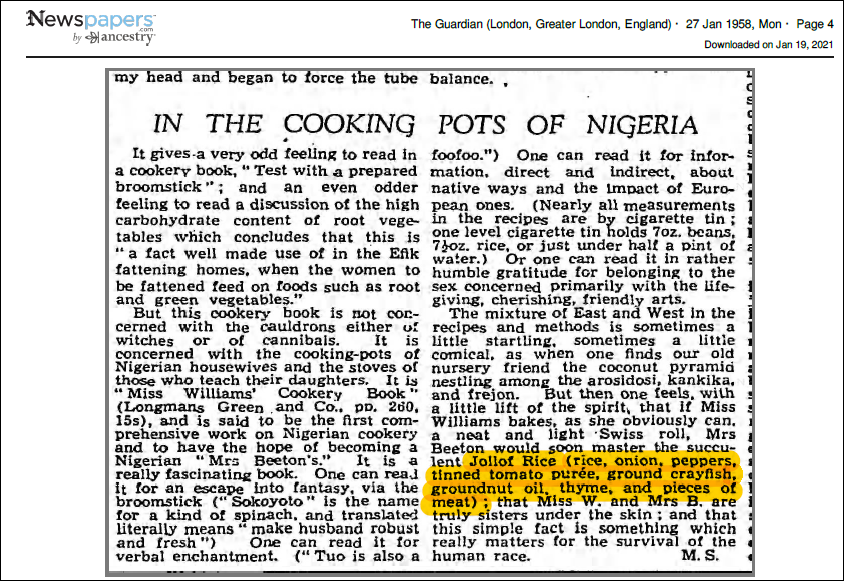#1: The Oldest West African or Diasporic Cookbook You Like, Know or Own?
This challenge is about ‘dating’ - not of the romantic type though I dare say learning about history is a love affair for me.
The book I’ve selected is Practical West African Cooking (1910) by two British colonial wives and sister-in-laws, Sylvia Leith-Ross and Genevieve Ruxton it’s available in the Feast Afrique Digital Library, here. Bonus book is the Classic Jamaican Cooking, originally published in 1893!
I love it because it contains a recipe for Jollof rice! That is the earliest known mention of this spiced red rice dish. Why is this important? Recipes are markers of time, place, culture, technique, method and more. They can help us bookmark, understand contextually, learn about what was happening at the time.
The Oxford English Dictionary explores jollof rice in the context of the words ‘Wolof’, ‘Jolof’, ‘Wollof’. Today Jollof sports two ls where one existed.
Various spellings are observed in historical records, referring to the people, language
1745 | Jolloifs, describing ‘The Natives’ in the geographer Francis Moore’s (1708) New General Coll
1828 | “In the Jolof Language there are two sounds of the guttural kind”, H. Kilham Specimens African Languages Sierra Leone p. vii
1930 | Jolof in Races of Africa by C. G. Seligman
The first mention of it as food/ compound is in the late 1950s. The Oxford English dictionary says 1959 in The Guardian archives which I trawled. I also found a 1958 mention for jollof in a cookbook review of Miss Williams Cookery Book, and later versions for jolof.
1959: Quantities of jollof rice and fufu were placed round about, the same year “The Manchester Guardian changed its name to The Guardian. This change reflected the growing prominence of national and international affairs in the newspaper.”
As a geologist, I - Ozoz - learned about The principle of uniformitarianism. It says that the present is the key to the past. It is the base of my theory of .……………., yet unnamed that states: the past is the key to the present.
What are the earliest cookbooks you know and love from the Black culinary canon?
What to do next? Check out the Feast Afrique Digital Library for Practical West African Cooking and other books, and share your favourites x




